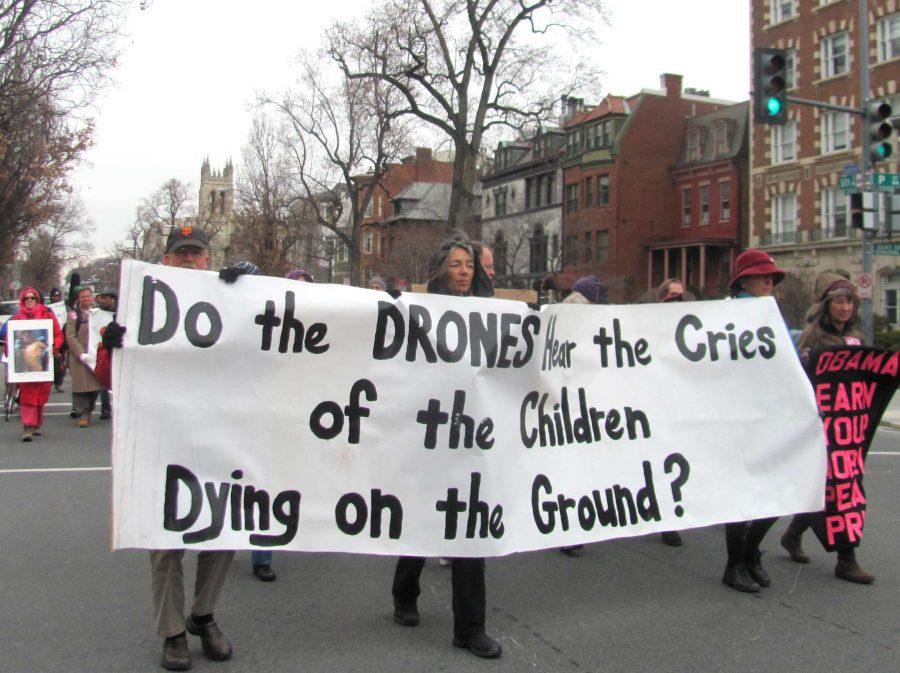The condition of American democracy erodes daily. As a people, we have sacrificed privacy and public space for the sake of security. Fear has helped us to justify these sacrifices. Fear of our enemies has caused us to accept our country’s own terror tactics.
Unmanned ships silently drop bombs on city blocks, people sold to private contractors are held without trial, people experience the sensation of drowning for the purpose of gathering information.
We accept our government’s actions because of our fear. We are placing our safety in the hands of an authority; trusting bureaucracy to keep us safe because the random nature of the attacks against us make us feel powerless and vulnerable. That fear gives the authorities power — power they will one day use to silence all challenges to the authority.
A most egregious example of the extent of the authorities’ power is the executive office “kill list.” Presidents Bush and Obama have used the extreme tactics of Al Qaeda and other radical groups to expand the United States’ war-making capability. The president has the power to select individuals for extermination regardless of their citizenship.
Implied executive powers do not tend to dissipate over time or be confined to one particular president. Implied powers become standard powers, span presidencies, and often become extended in their reach and applicability.
The alleged secret kill list includes the names of more than 20 people. The president and more than 100 advisors from all over the governments’ extensive national defense bureaucracy determine if the people on the list pose an immediate threat to U.S. security. Some of the people who have been executed, by personal order of the president, were U.S. citizens with full rights as such.
An extensive article published on May 29, 2012 by the New York Times described how diluted the kill list nomination process has become. ““What’s a Qaeda facilitator?” asked one participant [in the nomination process], illustrating the spirit of the exchanges. “If I open a gate and you drive through it, am I a facilitator?” “One guy gets knocked off, and the guy’s driver, who’s No. 21, becomes 20?” Mr. Daley, President Obama’s Chief of Staff 2011, said, describing the internal discussion. “At what point are you just filling the bucket with numbers?””
The executive office can decide to kill an individual, to kill an individual’s friends, family, entire block of neighbors. It is also up to the executive office alone to determine whether such a killing was justified by the targets involvement with Al Qaeda or other terrorist groups. Only the executive branch can determine who poses enough of a threat to be killed, and the executive branch alone determines what type of activity and how much of that activity constitutes terrorist activity. That is an incredible amount of unchecked power.
That power is expected to expand. It has already been expanded by President Obama’s legal maneuvering. Pakistan wanted a guy dead that did not pose an immediate threat to the U.S.
Technically under the law, approved by the president, governing when fatal drone strikes are acceptable, the U.S. could not kill the person. Secret memos released by the Washington Post show that in the U.S.’ bid to maintain a working relationship with Pakistan the President re-wrote the law in a manner which facilitated the occurrence of the hit.
What happens when armed drones inevitably start flying over U.S. houses? What happens when you refuse to discontinue a largely peaceful protest because the NSA claims the ground to be protected; are you a terrorist then?
It may seem far-fetched but we can see in the short history of the hit list that the potential nominees list is growing and because it is done mostly in secret, there is nothing to stop it from growing.

